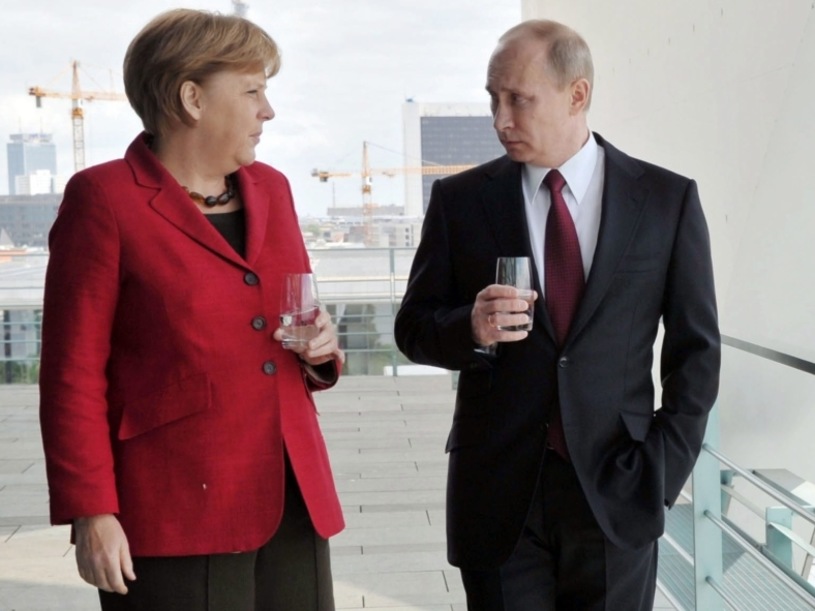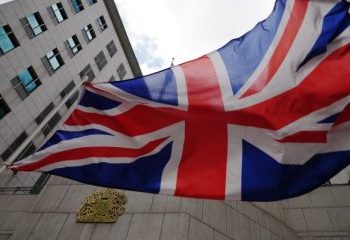Critics have been questioning the German Foreign Minister’s recent series of comments about working closer with Russia, with some labelling the diplomat a “Russia-sympathizer”.
German Foreign Minister Frank-Walter Steinmeier continued to push his ideas for détente towards Russia on Monday, arguing for better relations between the two countries at a conference in Berlin.
“We cannot simply wish away a Russia that has become immensely more difficult,” he said, calling for Germany and Russia to go from “a phase of confrontation and growing tensions, back to a reliable understanding of common security”.
His comments followed an opinion piece he wrote for daily Frankfurter Allgemeine Zeitung last week where he called for a new arms control deal with Russia in order to ease tensions between Moscow and the West.
The foreign minister wrote that he wanted to avoid a “new and dangerous arms race” so as to ensure stability for Europe and that a new deal with Russia would be a “proven means for transparency, risk prevention and trust-building.”
Still, he also noted that Russia had broken trust when it annexed Crimea in Ukraine in March of 2014.
“At the same time, we must all be united in the desire to avoid a further twist in the escalating spiral,” he wrote.
He went on to call for a “structured dialogue with all partners who carry responsibility for the security of our continent.”
But such comments have led critics to deride Steinmeier as a Russland-Versteher (Russia-sympathizer) due to his seemingly sympathetic stance, especially in comparison with his party’s conservative coalition partners in the Christian Democratic Union (CDU), like Chancellor Angela Merkel.
Germany has played a large role in trying to smooth over relations between Russia and Ukraine, and the Social Democrats (SPD) seem to prefer the so-called Ostpolitik approach used by their Cold War party leaders like former Chancellor Willy Brandt to normalize relations with Russia during that tense era.
While Merkel earlier this summer blamed Russia’s actions in Ukraine for a breakdown of trust with Nato, Steinmeier himself appeared to point a finger at Nato, warning it in June against “warmongering”.
And while Merkel has insisted that the sanctions against Russia for their inference in Ukraine hold, Steinmeier said in June that he was in favour of gradually lifting the sanctions if Russia showed it was making progress in the peace plan for Ukraine.
Under the headline “Steinmeier should not speak the language of the Kremlin,” a journalist for Bild tabloid criticized a recent speech by Steinmeier at Ural State University in which he questioned in cases such as the conflict in Crimea “when we should worry”.
“The fact that a German foreign minister asked before a Russian audience whether one should be worried when Russian tanks are rolling through a sovereign land mocks the consensus that Europe’s borders should never again be pulled apart by force,” the Bild journalist wrote.
A comment piece in the conservative Frankfurter Allgemeine Zeitung was also critical of Steinmeier, accusing him of “fishing in troubled waters” and saying he risked losing a sense of professionalism.
But the Bavarian Augsburger Allgemeine argued that Steinmeier was “doing his job” by trying to maintain good contact with the Russians.
“The consequences of further deterioration of the climate would hardly impact the USA, but would very much impact Europe – economically and politically,” a journalist for the newspaper wrote.
“Wresting concessions from Moscow through dialogue – that was the core of Willy Brandt’s successful Ostpolitik. Although the Cold War is long over, that principle still has its validity.”
Outside of Germany, its neighbours in Poland have expressed their own concerns about Germany’s relationship with Mother Russia.
Polish foreign minister Witold Waszczykowski criticized how Germany has been pushing ahead with plans for a gas pipeline from northern Russia through the Baltic Sea primarily for political reasons.
“That damages European solidarity,” he warned, adding that Germany should not put relations with Moscow above those with Warsaw.
And the Polish minister also went so far as to say that Steinmeier was showing “doubt about strengthening the eastern flank [of Nato]”.




















